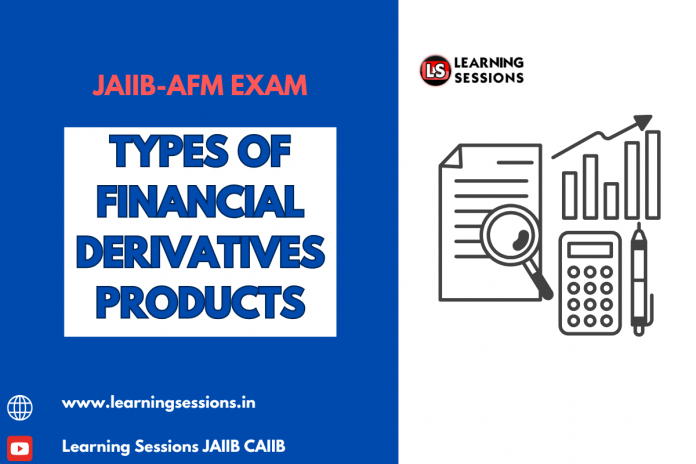In the Accounting & Financial Management (AFM) module of the Junior Associate of the Indian Institute of Bankers (JAIIB) exam, the topic of financial derivatives is integral for bank professionals. Derivatives are financial contracts whose value is derived from underlying assets, such as stocks, bonds, interest rates, or commodities. Mastering the types of financial derivatives including forwards, futures, options, and swaps is important for bankers, as these instruments play a major role in risk management, hedging, and speculative activities within financial markets. Learning Sessions will take you through this article that examines the types of financial derivatives through a case study approach, shedding light on practical applications and the implications of these instruments in banking and financial management.

📚 JAIIB Study Resources 📚
👉 Check Here
👉 Check Here
👉 Check Here
👉 Get Tests Here
👉 Check Here
DOWNLOAD PDF TYPES OF FINANCIAL DERIVATIVES PRODUCTS -CASE STUDY
Derivatives are categorized based on their structure and underlying asset classes. Banks and financial institutions commonly use these instruments to manage risks associated with fluctuating interest rates, exchange rates, and asset prices. Here’s a brief look at the main types:
-Forwards: Customized contracts to buy or sell an asset at a specified future date and price.
-Futures: Standardized contracts similar to forwards, traded on exchanges, with specified maturity dates and price.
-Options: Contracts giving the right, but not the obligation, to buy or sell an asset at a fixed price within a set timeframe.
-Swaps: Agreements to exchange cash flows between two parties, commonly used for interest rates or currencies.
For the extensive preparation of candidates, get details through our YouTube videos for JAIIB AFM Module wise Syllabus with explanations and tips to help candidates in their preparation journey.
You may also like these JAIIB case studies:
JAIIB | AFM | RISK BASED INTERNAL AUDIT
JAIIB | AFM | CASHBOOK IN DEBIT BALANCE
Overall it may be said, for JAIIB students, mastering these derivatives equips them to have knowledge about the nuances of risk management, enabling banks to protect against market uncertainties. In the AFM module, this understanding is essential, as it prepares banking professionals to implement strategies that balance profitability with effective risk mitigation. Learning Sessions provides additional information about JAIIB AFM OVERDRAFT BALANCE by giving examples of real life scenarios.
Learn more about this case study through our YouTube channel and PDF.
Get access to our Telegram Channel for free Pdfs of JAIIB.





